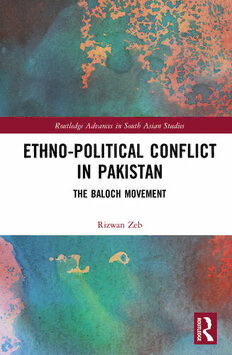
Ethno-political Conflict in Pakistan: The Baloch Movement PDF
02019·0.81 MB·English
Most books are stored in the elastic cloud where traffic is expensive. For this reason, we have a limit on daily download.
Preview Ethno-political Conflict in Pakistan: The Baloch Movement
Description:
This book critically examines the causes of the increase in insurgent violence in Balochistan and explores the relations between the national government of Pakistan and the province of Balochistan. Based on historical analysis, the book argues that the national government of Pakistan and the leaders of Balochistan both use a standard narrative when dealing with each other. According to the Baloch narrative, Islamabad exploits Balochistan’s natural resources without giving Balochistan its due share and has never accepted and granted Balochistan equal rights. The centre’s narrative emphasizes the tribal character of the Baloch society and suggests that the Baloch elite hinder Balochistan’s integration with the federation. This book demonstrates that both narratives are inherently flawed and presents a precipitous picture of the problem of insurgent violence. It also shows that the Baloch leadership is divided along tribal lines and lacks a unified voice and proposes that the Baloch elite use the narrative of enduring injustice only as a source of politicization of Baloch ethnicity when an actual or perceived injustice is taking place. An important addition to the literature on ethno-political conflicts, this unique analysis of the importance of narrative in the imagination of political movements will be of interest to scholars in the fields of South Asian studies, ethnic conflicts, separatist and political movements and Asian politics.
See more
The list of books you might like
Most books are stored in the elastic cloud where traffic is expensive. For this reason, we have a limit on daily download.
